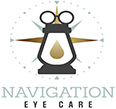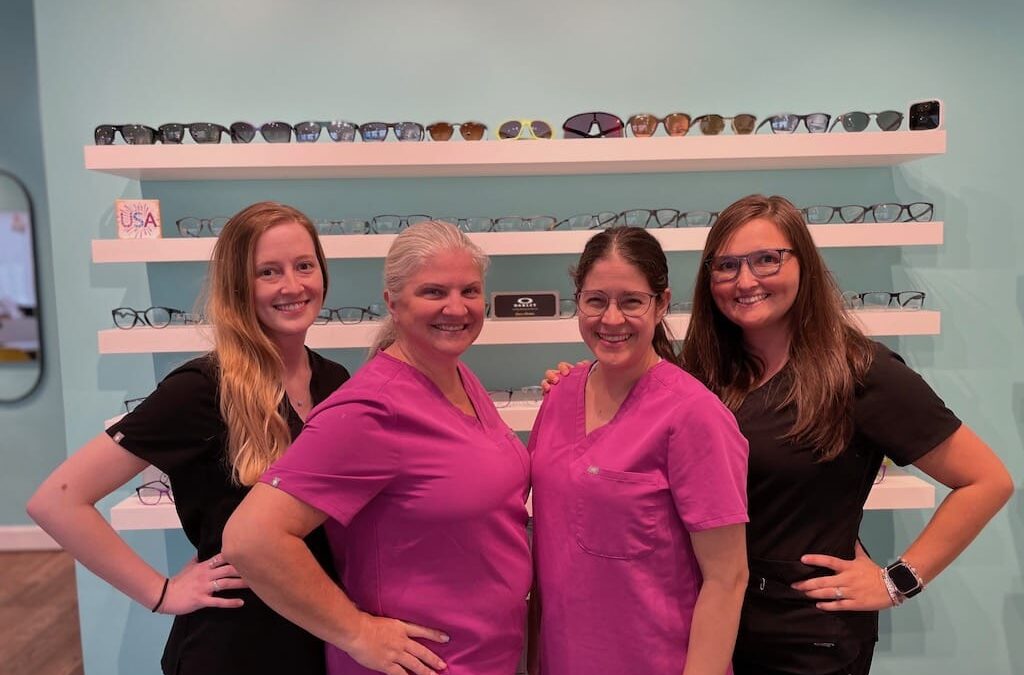Eye Health Detective: Decoding Your Family’s Eye History for Preventive Care
Your family’s health history is a treasure trove of insights that can guide your present and shape your future. When it comes to eye health, the information passed down through generations can be a powerful tool for preventive care. Uncovering the mysteries of your family’s eye history allows you to take proactive steps to protect your vision and that of your loved ones. In this article, we embark on an eye health detective journey, with insights from Navigation Eye Care’s optometrist Chesapeake VA, to decode the significance of your family’s eye history and its impact on preventive eye care.
The Clues Within: Family Eye History
Just as certain traits and characteristics run in families, so do certain eye conditions and diseases. By understanding your family’s eye history, you gain valuable insights into potential risks and areas to focus on for preventive care.
Common Eye Conditions: Conditions like nearsightedness, farsightedness, astigmatism, and even eye diseases like glaucoma and macular degeneration can have a genetic component.
Patterns of Inheritance: Eye conditions can be inherited in different ways, such as through dominant or recessive genes. Recognizing these patterns can help you anticipate potential risks.
Early Detection and Prevention
Decoding your family’s eye history empowers you to take proactive steps to safeguard your vision and that of future generations.
Regular Eye Exams: Armed with knowledge of potential risks, scheduling regular eye exams becomes even more essential. Navigation Eye Care’s Optometrist Chesapeake VA can monitor your eye health and detect any issues early on.
Lifestyle Adjustments: If your family has a history of certain eye conditions, lifestyle adjustments such as wearing UV-protective sunglasses, maintaining a balanced diet rich in eye-healthy nutrients, and managing chronic conditions become crucial.
Tailored Approaches: Family eye history can guide optometrists in providing tailored recommendations for your eye care, addressing potential risks and identifying preventive measures.
Communicating with Navigation Eye Care
When it comes to understanding your family’s eye history, effective communication is key.
Share Comprehensive Information: Be prepared to provide a detailed family history, including any known eye conditions, diseases, surgeries, and vision problems.
Ask Questions: Don’t hesitate to ask questions about potential risks, genetic factors, and how to navigate preventive eye care based on your family’s history.
Genetic Testing: In some cases, genetic testing may be recommended to assess your risk for certain eye conditions.
Eye Health for Future Generations
The impact of understanding your family’s eye history extends beyond your own well-being—it also benefits future generations.
Educate and Inform: Share your family’s eye history with your children and grandchildren. By raising awareness, you empower them to make informed decisions about their eye health.
Early Intervention: If certain eye conditions are identified in the family history, interventions can begin at an early age, providing children with the best chances for healthy vision.
A Gift of Vision
Decoding your family’s eye history is a gift you give not only to yourself but also to your loved ones. By understanding potential risks, staying proactive with preventive care, and fostering open communication with Navigation Eye Care’s optometrist Chesapeake VA and team, you pave the way for a future where clear vision is protected and cherished. Remember, the knowledge of the past can illuminate the path to a brighter vision-filled future.
Seeing Beyond 20/20: The Importance of Comprehensive Eye Exams for All Ages
When we think of eye exams, the first thing that often comes to mind is reading an eye chart and hearing the famous question, “Which is better, one or two?” While this test, known as the Snellen chart, helps determine visual acuity, it’s just the tip of the iceberg when it comes to assessing overall eye health. Comprehensive eye exams are a vital tool for people of all ages to ensure optimal vision and catch potential issues early. In this article, we’ll explore the significance of comprehensive eye exams, with insights from Navigation Eye Care’s own optometrist Chesapeake VA.
Beyond the Surface: The Power of Comprehensive Exams
Visual acuity, often expressed as 20/20, is an important measure of how well you can see at a standard distance. However, it’s essential to recognize that comprehensive eye exams delve much deeper, focusing on various aspects of eye health.
Eye Health Evaluation: Comprehensive eye exams assess the health of your eyes, checking for conditions such as glaucoma, cataracts, macular degeneration, and more.
Refractive Errors: While 20/20 vision is considered “normal,” refractive errors like nearsightedness, farsightedness, and astigmatism can impact your vision quality. These errors can be corrected with glasses, contact lenses, or even laser surgery.
Eye Coordination and Tracking: Eye teaming and tracking skills are crucial for comfortable and accurate vision, especially during activities like reading and driving.
Binocular Vision: Binocular vision ensures both eyes work together to provide a single, clear image. Problems with binocular vision can lead to eye strain, double vision, and discomfort.
Early Detection and Prevention
Comprehensive eye exams play a pivotal role in early detection and preventive care.
Early Intervention: Detecting eye conditions in their early stages allows for timely intervention, preventing further progression and potential vision loss.
Children’s Eye Health: Comprehensive exams are especially important for children. Early detection of refractive errors or eye coordination issues can prevent learning difficulties and enhance academic success.
Aging Eyes: As we age, the risk of eye diseases increases. Regular eye exams become even more vital to catch and address age-related issues early.
Beyond Visual Health
Comprehensive eye exams offer insights that extend beyond vision correction.
Systemic Health Indicators: Certain eye conditions can serve as indicators of systemic health issues like diabetes, hypertension, and more.
Personalized Recommendations: Optometrists can provide personalized recommendations for eye care, lifestyle adjustments, and potential interventions based on your individual eye health needs.
A Holistic Approach
The expertise of Navigation Eye Care’s optometrist Chesapeake VA is an invaluable resource in maintaining optimal eye health.
Professional Diagnosis: Optometrists can diagnose and manage a wide range of eye conditions, tailoring their approach to your specific needs.
Technology and Expertise: Navigation Eye Care uses advanced technology to assess the health of your eyes, providing a comprehensive view of your eye health status.
Lifespan Care: From pediatric eye care to geriatric eye health, Navigation Eye Care’s Optometrist Chesapeake VA and team offers quality care that spans across all stages of life.
A Clear Vision for Life
Seeing beyond 20/20 requires embracing the depth and breadth of comprehensive eye exams. These exams provide a comprehensive evaluation of your eye health, detecting issues early and ensuring your vision remains clear and comfortable. By consulting Navigation Eye Care and scheduling regular exams, you invest in a lifetime of optimal vision and well-being. Remember, your eyes are not just windows to the world; they’re also valuable indicators of your overall health and vitality.

